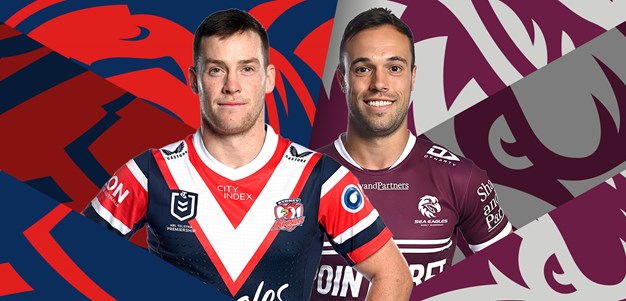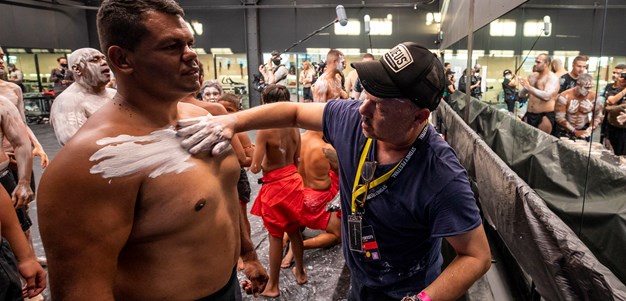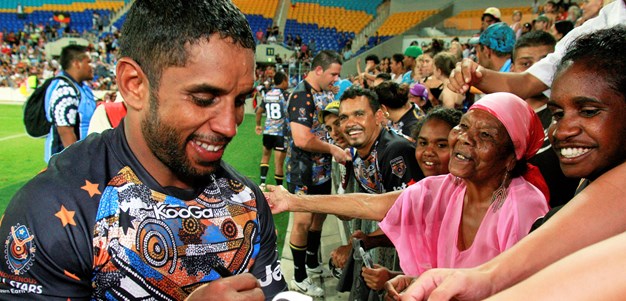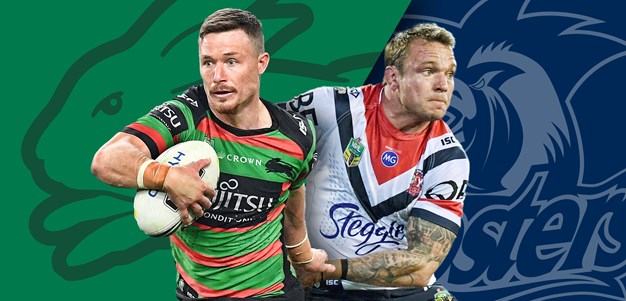
If Adam Goodes had been an NRL player, would he have been treated differently?
With Sydney Roosters star Latrell Mitchell taking a stand against racist abuse on social media, it is a timely question.
Goodes, who is the subject of two recently released documentaries – The Final Quarter and The Australian Dream, reached out to Mitchell last week to offer his support.
Support was something the AFL has since acknowledged Goodes did not receive as the Sydney Swans star was subjected to constant booing and vilification after calling out a spectator who had racially taunted him during a match against Collingwood in 2013.
The online abuse of Mitchell, which was not an isolated incident, and criticism of NSW five-eighth Cody Walker and other Indigenous players for not singing the national anthem before State of Origin matches has drawn comparisons with the treatment Goodes endured in the finals years of his career.
Yet Australian Rugby League Indigenous Council chair Katrina Fanning believes Goodes would have been treated differently had he been an NRL player.
NRL Uluru Statement from the Heart
"Yes, I do," Fanning said. "I still don't understand the silence of so many.
"I get that there are people who will boo and I get that there are people who will say racist things but I don't get the silence of people who are uncomfortable about it or who know that it is just wrong.
"I am not sure why that happened because I don't know the ecosystem that is Aussie Rules but certainly when we go to games now and that stuff happens, people call it out.
"People don't let that happen to someone in their team and they see us as part of their team - not separate to it, and that is fundamentally how Australians should see it."
NRL CEO Todd Greenberg, RLPA chief executive Ian Prendergast, Roosters coach Trent Robinson and a host of players have spoken out against racism and in support of Mitchell.
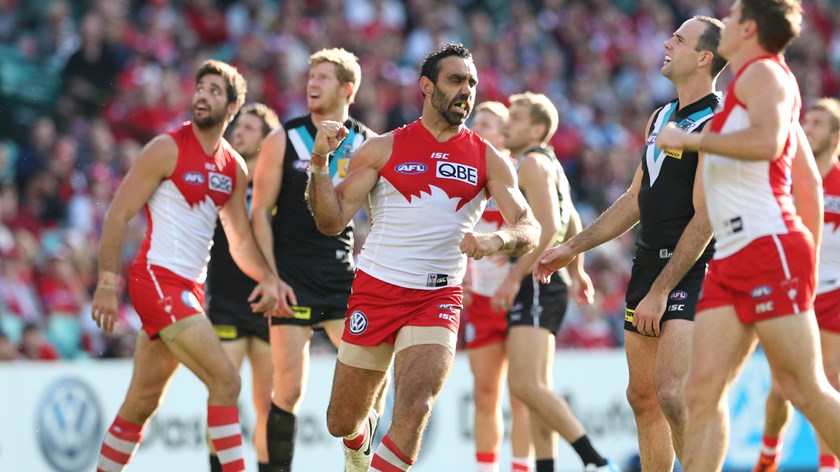
The response was as swift and united when Greg Inglis was racially abused as he walked from Panthers Stadium after a match for South Sydney at the start of last season. Two fans were later banned indefinitely from attending games.
Some may argue the NRL has learned from the mistakes of the AFL, which has now taken steps to rectify after admitting in an apology to Goodes earlier this year "the game did not do enough to stand with him and call it out".
Former NRL chief executive Dave Smith was firm in his condemnation of racist comments directed at Inglis in a social media post as "abhorrent" and "shameful" in 2013.
Latrell: Education key to eliminating racism
Images of Johnathan Thurston's daughter playing with a dark-skinned doll on the field after the 2015 NRL grand final went global, with this columnist interviewed by BBC World Service about comparisons with the reaction towards Goodes from AFL crowds.
Goodes had retired a broken man just weeks earlier, while the NRL grand final featured two Indigenous captains for the first time in Thurston, who led North Queensland to an historic premiership, and Brisbane’s Justin Hodges.
The NRL hosted a screening of The Final Quarter on Thursday for staff, who are required to attend an Indigenous Cultural Awareness Program within six months of starting employment.
More than 7 per cent of the NRL's workforce is Indigenous, along with 12 per cent of the game's elite players.
At grassroots level, more than 34,000 registered players are of Aboriginal or Torres Strait Island heritage – a number that has been growing since the introduction of the All Stars game in 2010.
Tedesco praises Latrell after challenging week
The NRL became the first national sporting organisation to develop a Reconciliation Action Plan in 2008 and the following year joined the Close the Gap campaign for increased life expectancy among Indigenous Australians, while the game has recently thrown its support behind the Uluru Statement From the Heart.
ARLC commissioner Megan Davis played a key role in shaping the Uluru Statement, while ARLIC provides strategic advice on Indigenous issues within the game.
An Indigenous Players Advisory Group, which includes Mitchell, was also established and is helping to develop the next group of leaders.
Mitchell is only 22 and has a long career ahead of him but there is an awareness the game can’t afford to let the NSW and Australian representative carry the burden of combating racism on his own and needs to ensure he has support.
"One thing that stood out to be at our camp earlier this was that we need to make sure that we have strong leaders coming through and plenty of other leaders," Indigenous All Stars coach Laurie Daley said.
"We lost a lot of blokes with experience in that area like Thurston, Inglis and Sam Thaiday so we really need to work hard on developing leaders."
The views in this article do not necessarily express the opinions of the NRL, ARLC, NRL clubs or state associations.


